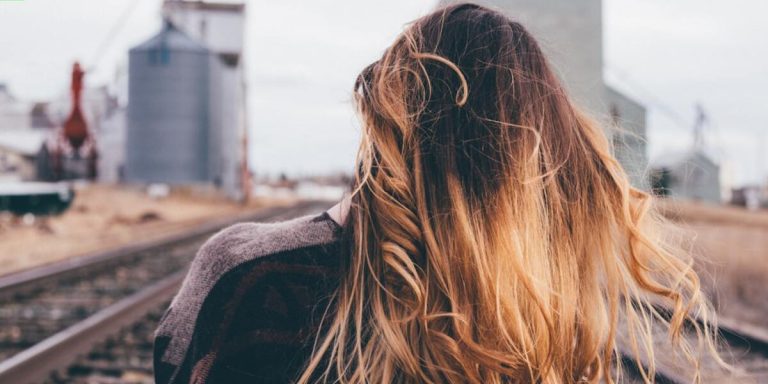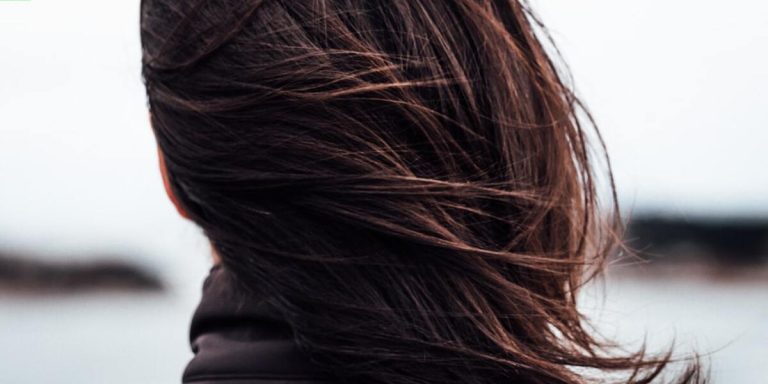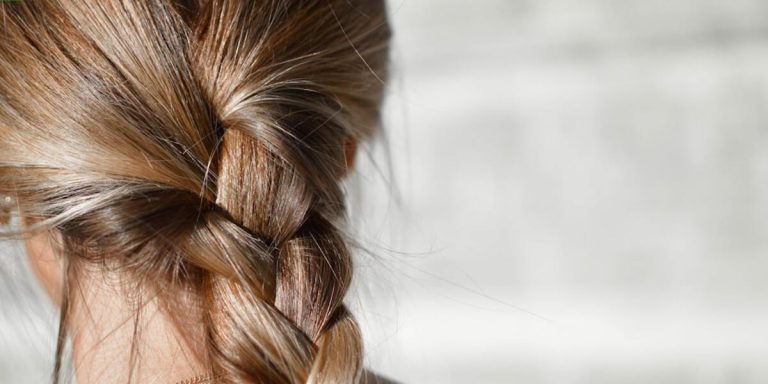What Vitamin Deficiency Causes Hair Loss in Females – A Comprehensive Guide
Hair loss can be incredibly distressing, affecting not just appearance but also self-esteem and emotional wellbeing. When investigating “what vitamin deficiency causes hair loss in females”, it’s important to note that a balanced diet plays an integral part in maintaining healthy locks. However, deficiencies are surprisingly common due to various lifestyles or medical conditions that disrupt this balance.
While there may be several factors contributing to hair fall such as stress, hormonal imbalance, or genetics at times the issue might boil down simply because of nutritional deficits. This includes insufficient quantity of certain vitamins essential for supporting vigorous growth and strength of your tresses right from their roots up till the tips. Uncovering these overlooked yet vital reasons is crucial in combating dreaded hair shedding especially in women.
Did you know?
Did you know? Studies indicate that women with a Vitamin D deficiency have a higher likelihood of experiencing hair loss. This essential vitamin stimulates new and old hair follicles, promoting healthy growth.
Understanding Female Hair Loss: Tracing Nutritional Deficiencies
Hair loss in females, often a distressing phenomenon, can have numerous causes. One such cause gaining significant attention lately is the deficiency of crucial vitamins within our dietary consumption. In today’s modern world where we are constantly on-the-move and heavily rely on quick fixes for meals, many women unknowingly miss out essential nutritional elements leading to unexpected health issues like hair fall.
While genetics does play a part in determining the quality and density of one’s hair growth cycle, experts believe that nutrition also holds an equally vital role. This piece shines light upon how certain vitamin deficiencies could be silently contributing to your problem with thinner locks or receding strands – an issue more prevalent than generally acknowledged.
Our bodies need specific nutrient amounts for optimal functioning. Lack of these nutrients can disrupt internal processes and cause visible external changes, affecting scalp health and the hair follicle life cycle.
Vitamins such as B12, found in vegetarian diets, and Vitamin D, made from sunlight exposure, are essential. Inadequate levels in the body can lead to symptoms like brittle nails and diffused thinning across the crown area that may evolve into widespread balding patterns if not addressed.
Identifying Signs of Vitamin-Related Hair Thinning
In our quest to understand what vitamin deficiency causes hair loss in females, it’s crucial we identify the signs of nutrient-related thinning. An alarming number of women suffer from this issue, often due to nutritional deficiencies impacting their bodies’ ability to maintain healthy hair growth.
Bodies express discomfort or distress through physical symptoms – with one being changes in your hair quality and thickness. If you’ve noticed an increase in falling strands on your comb or pillowcase lately, a lacking diet might be the culprit.
Iron is essential for developing red blood cells that supply oxygen and nutrients throughout the body – including the scalp! Iron deficiency becomes evident when excessive shedding takes place alongside other manifestations like pale skin, dizziness or tiredness all day long. It’s not uncommon for adequate iron consumption levels directly affecting how thickly lush locks look at any given time!
Key Vitamins and Minerals Essential for Healthy Hair Growth
Hair loss in females can often be attributed to nutritional deficiencies, particularly a lack of certain vitamins and minerals crucial for maintaining healthy hair growth. Understanding what vitamin deficiency causes hair loss in females is therefore key to addressing this common concern.
Vitamin A plays an essential role in your body’s overall health, including the well-being of your locks. It boosts cell growth including those responsible for producing the oil that keeps our scalp moisturized and healthy. However, excessive intake could lead to opposite effects such as dryness or even hair fall.
Next on the list is Vitamin B complex which includes biotin (commonly known as Vitamin H) among others like niacin(B3), pantothenic acid(B5) etc., all vital for nourishing follicles from within while promoting thicker mane with reduced chances of shedding too soon.
If you are wondering “what vitamin deficiency causes hair loss in females?”, one prime culprit can undoubtedly be Iron. This mineral ensures efficient oxygen supply reaching up towards scalp thereby strengthening roots further helping maintain their firm grip.
Especially important during times when hormonal imbalances might cause unwanted changes like increasing DHT levels leading towards patterned baldness amongst women post menopausal phase would definitely mean having enough zinc intakes since it helps regulate various hormones affecting both general wellness along side preserving beautiful tresses by preventing potential damages triggered due oxidative stress caused hormone fluxes experienced around this age group specifically.
The Impact of Diet on Women’s Scalp Health
A healthy, well-balanced diet significantly impacts the overall health of women’s hair. Nutrient deficiencies can play a significant role in female hair loss, and it is crucial to understand how integral vitamins are for optimum scalp wellness. For instance, one fundamental link exists between vitamin deficiency and hair loss in women that requires more attention.
Studies conducted over recent years have highlighted the connection between certain types of nutrient deficiencies, particularly vitamin-related ones like Biotin (Vitamin B7), Vitamin D or Iron deficiency which often result in substantial thinning or even complete shedding of hair among females. Lacking these essential nutrients weakens our follicles causing them potentially to lose their function altogether—leading directly into an increasing problem with thin locks as we age.
Adding further weightage onto this topic — research from prominent institutes shows how alarming rates concerning such issues continue rising in 2023 mainly due to lifestyle choices coupled with dietary restrictions that many modern-day women impose on themselves; thus neglecting their bodily needs severely overtime.
How Poor Nutrition Contributes to Follicle Damage
Poor nutrition plays a significant role in follicle damage and consequent hair loss. Especially for women, deficiency of certain vitamins can trigger this unfortunate issue. When the question arises – what vitamin deficiency causes hair loss in females?
The answer primarily lies with four Vitamins – Vitamin D, B-Vitamins (particularly Biotin), Iron and Zinc.
Vitamin D is an essential nutrient that aids cell growth and rejuvenation pertinent to healthy looking locks. Low levels of Vitamin D have been directly linked with alopecia or female pattern baldness. Sunlight being a major source requires adequate exposure which could be challenging amidst our busy lifestyles and indoor-centric work nature prevalent these days.
B-vitamins play vital roles such as creating red blood cells necessary for optimal scalp health by aiding oxygen supply across the body including your tresses’ roots making them stronger from within. Deficiency often embarks damaging effects leading two steps closer towards thinning strands; particularly lack of biotin popularly acclaimed ‘hair-growth’ vitamin accelerates this process further promoting fragile follicles hence contributing more towards rapid hair fall outs.
Balancing Your Diet to Combat Vitamin Deficiency Induced Hair Loss
Hair loss in females can often be attributed to a deficiency in essential vitamins. Understanding what vitamin deficiency causes hair loss is the first step towards correcting it through diet.
One of the primary culprits behind hair fall among women is Vitamin D deficiency. This fat-soluble vitamin aids calcium absorption and promotes healthy follicle growth, both key factors for robust scalp health. Increase your intake by adding fatty fish like salmon, dairy products fortified with Vitamin D or simply exposing yourself to sunlight regularly.
Next on the list is biotin or B7 – an integral component that fuels our cells’ metabolism rates which also affects how efficiently they produce amino acids – building blocks for keratin (a type of protein responsible for making up our hair). Eggs, nuts and whole grains are excellent sources of this nutrient.
Iron also plays a crucial role when considering what vitamin deficiencies cause hair loss in females. Responsible for delivering oxygen-rich blood throughout our bodies including to tissue regeneration sites such as locks under repair; low iron levels lead to poor circulation thereby weakening strands over time thereby causing sheds at an alarming rate! Load up foods high iron content include red meat, spinach and lentils into your regular meals.
Holistic Approaches to Preventing Nutrient-Deficient Hair Fall in Women
As the pursuit of good health goes beyond diets and exercise in 2023, many women are now turning towards holistic approaches to address various issues including hair loss. Increasingly common is nutrient-deficient hair fall — a condition often triggered by insufficient intake or absorption of essential vitamins that keep our locks luscious.
Hair health can reflect overall body wellness, especially in women as hormonal changes throughout different stages of life often influence both areas concurrently. The impact vitamin deficiencies have on this correlation cannot be overstated; specific nutrients play vital roles not only for maintaining shiny strands but also stimulating their growth.
Incorporate iron-rich foods like spinach to help reduce thinning and increase zinc intake through oysters to significantly decrease shedding. Daily supplementation with vitamin D can greatly improve the activity of stalled hair follicles, leading to considerable improvement in new growth among women experiencing severe hair loss due to an initial lack of vitamin D.
Remember though these suggested actions should work harmoniously within your lifestyle rather than serving mere standalone solutions because the best approach truly remains – balance! Keep attentive over all parts involved when nurturing yourself holistically so that you wind up covering every necessary aspect alongside ensuring optimal bodily function increasingly connected with female pattern baldness prevention too naturally over time!
Incorporating Supplements into a Woman’s Wellness Regimen
In this modern, fast-paced world of 2023, divvying up attention to different aspects of personal wellness can be challenging. One area that often gets overlooked is hair health. Among the key questions women grapple with is what vitamin deficiency causes hair loss in females?
Let’s explore how incorporating supplements into a woman’s wellness regimen could combat nutrient-deficient hair fall.
When it comes to dealing holistically with issues such as thinning or falling hair, vitamins and minerals play an indispensable role. By replenishing vital nutrients through dietary additions we can address potential deficiencies that may lead to female pattern baldness.
Firstly, Vitamin A encourages cell growth throughout your body including your scalp’s cells and follicles; however balance here is crucial – too little leads to dry brittle strands whereas excess contributes toward rapid shedding instead due their faster than average life cycle.
Secondly B-vitamins like biotin aid in creating red blood cells which transport oxygen and other essential nourishment towards our scalp thereby facilitating healthier locks where deficiency may result otherwise.
Third on our list are Vitamins C & E – antioxidants preventing oxidative stress from free radicals damage upon follicular protein structures while also aiding collagen synthesis for better structural integrity respectively.
Lifestyle Adjustments that Support Optimal Vitamin Levels
As we delve deeper into the holistic approaches to prevent nutrient-deficient hair fall, understanding what vitamin deficiency causes hair loss in females becomes even more important. Making lifestyle adjustments could be one of your best defenses against this type of hair loss.
To start with, a balanced diet is absolutely essential. Incorporate foods rich in iron and biotin such as spinach, lentils, eggs and avocados into your daily meals. These are known for their ability to boost levels of vital nutrients required by our body for healthy growth and maintenance of hair follicles.
Secondly, regular exercise can help improve circulation which means better delivery of nutrients to your scalp region. This includes aerobic exercises like walking or running but also targeted moves like scalp massages that enhance blood flow directly where you need it most: at the roots!
A third adjustment involves dunking those junk food cravings! Processed food items tend not only lack necessary vitamins but also damage our gut health over time affecting overall absorption capabilities – another reason why they aren’t ideal when it comes to maintaining strong strands.
Lastly do remember hydration isn’t just skin deep; staying hydrated assists cell turnover including ones within scalp too leading healthier shiny locks while reducing chances dry brittle ends prone breakage thinning patches alike.
Conclusion
In closing, understanding the link between vitamin deficiency and hair loss in females is crucial for taking proactive measures. Remember “what vitamin deficiency causes hair loss in females” isn’t just trivia—it’s knowledge that brings you closer to embracing healthier habits. From tweaking your diet to introducing supplements, it all counts towards heralding stronger locks.
If our guide has sparked an interest or concern about other potential factors contributing to hair loss, don’t hesitate! Explore further on our website where we delve into a broad range of subjects under ‘Hair Loss Causes’. With every article carefully compiled with reliable information and practical tips; find your solutions at the swipe of a finger!
So why wait when your journey towards better hair health can start right now?







